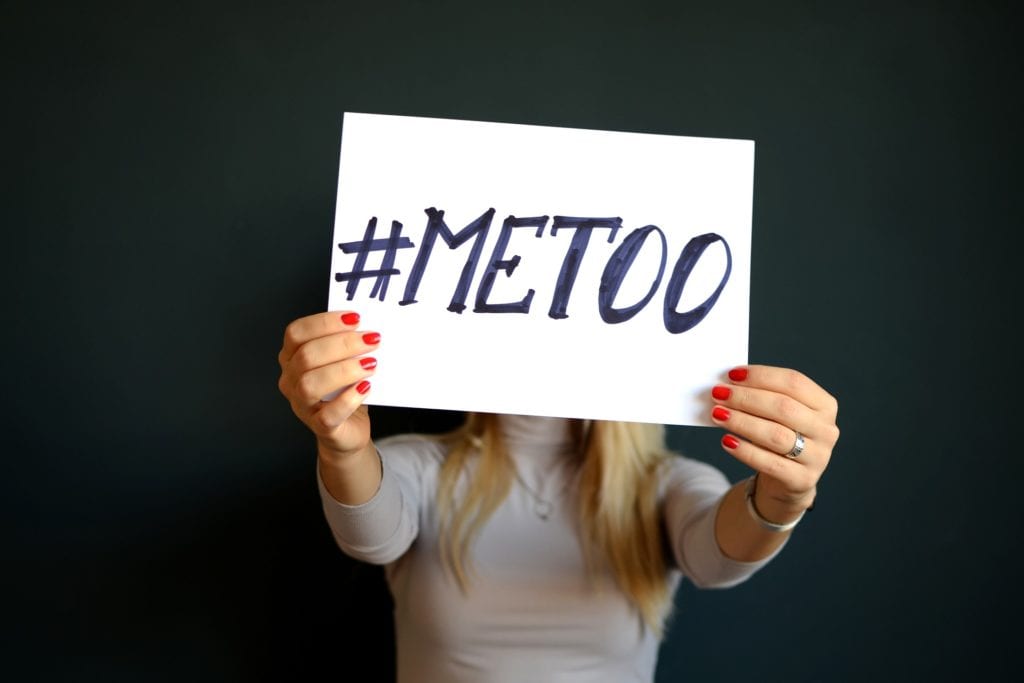
It’s no secret that millennials aren’t afraid to share their voice. The emergence of social media has provided young minds with an outlet for conversation, expression, and rebellion. Their voices aren’t being overshadowed by outspoken politicians and news anchors – not to say that activism and enthusiasm for causes were absent in history.
However, millennials unique use of social media as a tool for change has had a positive influence on how our society views rape culture. Not only is there an influx of influence by millennials as a whole, trends demonstrate awareness in their use of media techniques to drive narratives. By diving into the main causes of sexual assault, we’re able to find a trend that positively impacts how future generations will view sexual assault and rape culture.
A Movement, not Social Media Campaign
The recent news headlines about sexual assault violations from movie producers, politicians and – ironically enough – news anchors, has sparked an entire #metoo movement. A movement that has been around for quite some time but only really came to headlines following thousands of “re-tweets” of a post made by Alyssa Milano using the #metoo hashtag. Both men and women have used social media as a platform to share stories of sexual harassment and sexual assault.
Millennials know the signs of sexual abuse very well because education on the subject has been enforced in public schools throughout the US. What makes this movement so empowering for millennials and older generations is that both younger and older individuals are able to share their stories and confide in each other. This juxtaposition of empowerment between ages is a correlation to how rape culture is likely to be viewed.
The #metoo movement is far from a glorification of rape culture. It is an outcry for openness that had so long been shunned by mainstream media. These victims realize their voices need and want to be heard. Many of these stores have been held back by woman and men for so many years because they were afraid they would be shamed. Social sharing is so important for millennials because it helps them share and receive valuable information. As a society, no previous generation has ever been more connected.
Objectified, Blamed and Shamed
So what was it that bred this fear to share and be outspoken sexual abuse victims? In previous generations, the primary source for information was the evening news. According to research conducted by Rainn.org, an organization dedicated to victims of sexual violence, %54 of sexual assault victims are between the ages of 18-34.
Currently, those who are between the ages 18-34 are classified as “millennials.” So how can it be those who are the largest victims are the biggest influencers on sexual abuse? Social media has given those victims a voice and as a result, this has made those who are most vulnerable, more valuable to ending sexual assault.
A United Message
The women’s march on Washington following Trump’s election in 2016 is an incredible example of how millennials are coming together in an effort to create awareness and advocate for the most vulnerable. For decades, Marches on Washington have been a progressive symbol for change.
Not only was the whole world watching, but the notion of involvement was what drew millions of people and inspired millions more to start their own marches. Today, the idea of being involved is stronger than anything. Not only are millennials the largest – they’re the loudest and proudest.
Millennials make up a quarter of the population, so naturally, their voices are overpowering. According to the Pew Research Center, millennials are the best educated group of young adults in American history. Additionally, %54 percent of millennials have started their own business or are planning to in the future. The influence is carried both socioeconomically and economically.
While population grows, so does its knowledge. It’s safe to say the impact millennials have had on sexual abuse is positive and promising for our future generations. They have shown they will not tolerate harassment in the workplace or on the internet. Nor will they tolerate not standing for something.
This “pact mentality” both in the virtual world and the real world will inspire future generations to make their own landmark changes which will include an ever-changing moral discussion on humanity.












